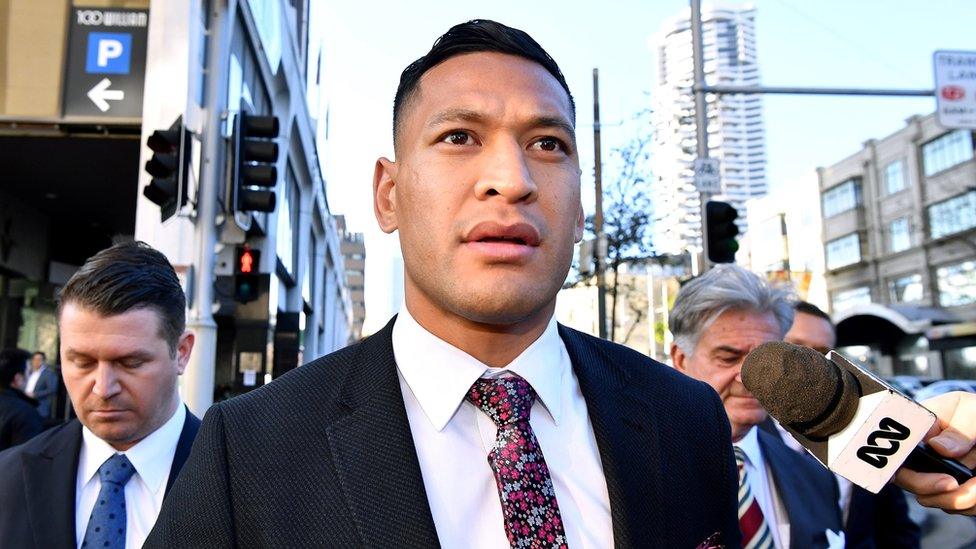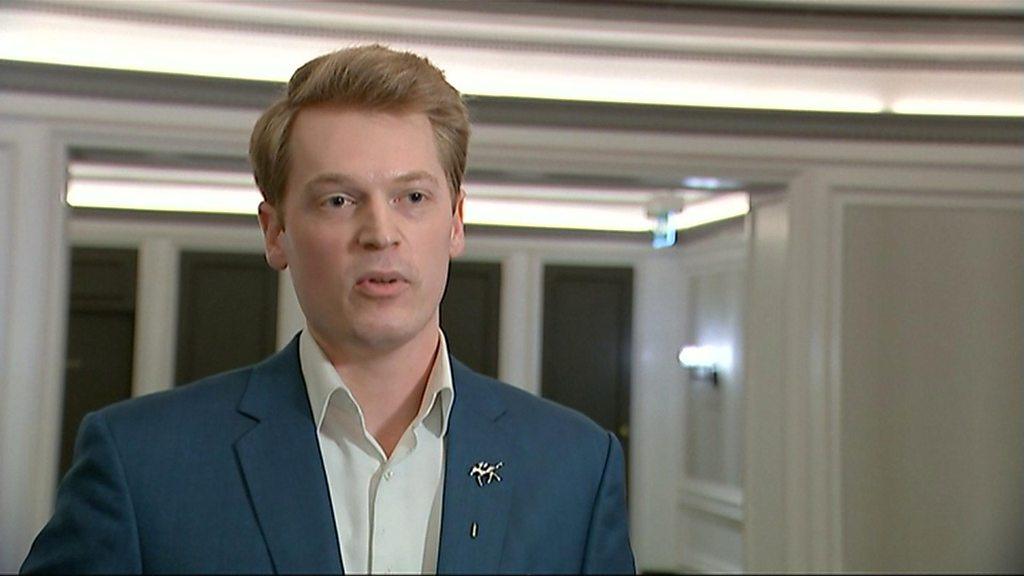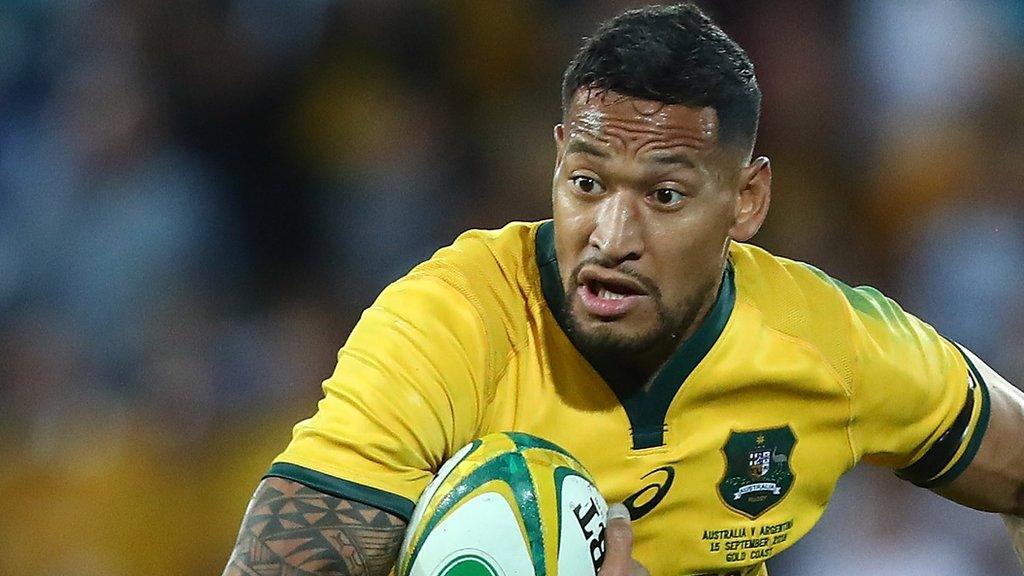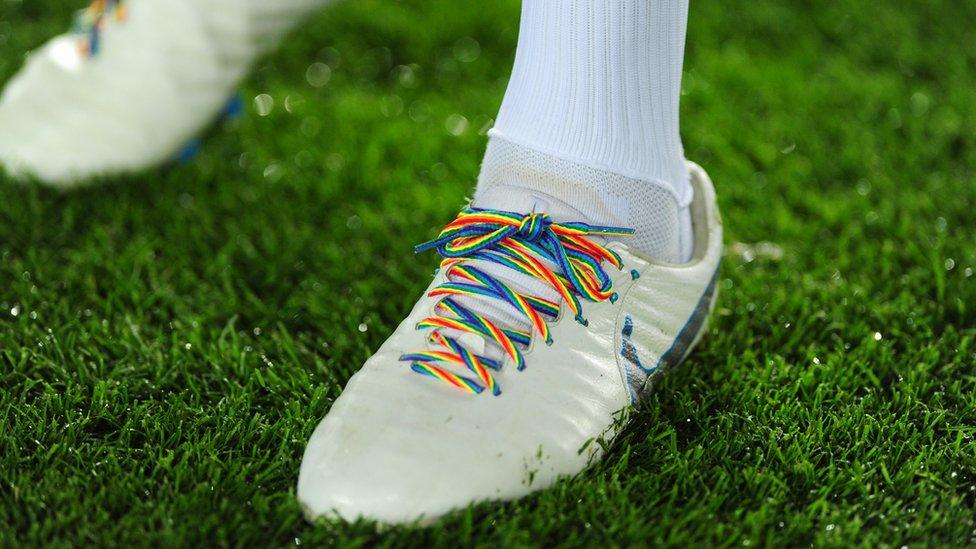Israel Folau: Sacked player sues Rugby Australia over anti-gay row
- Published

Rugby Australia sacked Folau for making anti-gay comments
Sacked rugby player Israel Folau has launched court action against Rugby Australia (RA) in a case which may set a legal precedent for religious expression in Australian workplaces.
The former Wallabies player was fired in May after he wrote on social media that "hell awaits" gay people.
He argues his contract was unlawfully ended due to his Christian beliefs.
Australian rugby officials maintain that Folau breached a players' code of conduct.
Mediation attempts in Australia's main workplace relations tribunal broke down in June.
Formerly one of Australia's highest-paid athletes, Folau has said that he is seeking A$10m (£5.6m; $6.8m) in compensation and a return to the national side. He has filed an application in the Federal Circuit Court.
The 30-year-old fullback has drawn support from vocal Christian lobby groups, but he has also been widely condemned for his anti-gay and anti-transgender comments.
In June, he raised over A$2m in a crowd-funding campaign after saying that "tens of thousands of Australians" had donated to his cause.
An earlier fundraiser had been shut down by host site GoFundMe, after the platform said Folau's cause promoted discrimination.
The Australian Christian Lobby (ACL) set up a second fundraiser for the rugby player which raised A$2m
"Thank you to those who have supported me over this journey - it has meant so much to [my wife] Maria and me. God bless," Folau tweeted on Thursday.
What is the legal dispute?
RA says Folau committed a "high level" breach of its players' code of conduct, including "respectful use of social media".
The code requires players to "to treat everyone equally, fairly and with dignity regardless of gender or gender identity, sexual orientation, ethnicity, cultural or religious background, age or disability".
Officials had previously warned Folau over anti-gay messages he posted on social media.
Folau argues he is the victim of religious discrimination and that his case is about free speech. He lost several corporate sponsorship deals following his sacking.
The case has fuelled debate about what constitutes religious freedom and hate speech in Australia, and the extent to which comments can be regulated by a workplace.
Legal experts have suggested the case may provide a precedent for future employment contracts.
"We don't yet have a definitive ruling, external on the apparent conflict between an employer's right to control employees' social media comments and the protections of religious or political freedom found in discrimination law," wrote law professor Anthony Forsyth in The Conversation in June.
- Published25 June 2019

- Attribution
- Published18 June 2019

- Published5 April 2018

- Published30 November 2018

- Published13 September 2017
